A debate has broken out between politicians and scientists as to whether atmospheric warming can be delayed by reducing short-lived climate forcing agents. An international research team has now confirmed that a reduction in carbon dioxide emissions is the only long-term remedy for global warming.
Nov 4th, 2014
Read more
The 'grimsel' electric racing car today broke the previous world record for acceleration in electric cars. The vehicle accelerated from 0 to 100 km/h in 1.785 seconds in under 30 metres.
Nov 4th, 2014
Read more
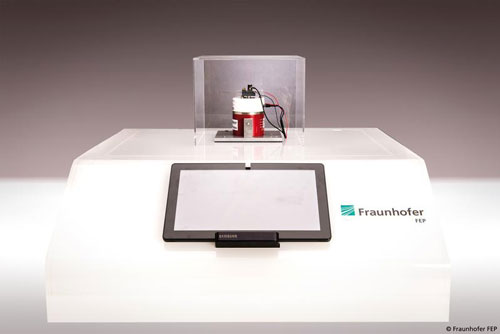 The trend toward energy self-sufficient probes and ever smaller mobile electronics systems continues unabated. They are used, for example, to monitor the status of the engines on airplanes, or for medical implants. They gather the energy they need for this from their immediate environment - from vibrations, for instance. Fraunhofer researchers have developed a process for the economical production of piezoelectric materials.
The trend toward energy self-sufficient probes and ever smaller mobile electronics systems continues unabated. They are used, for example, to monitor the status of the engines on airplanes, or for medical implants. They gather the energy they need for this from their immediate environment - from vibrations, for instance. Fraunhofer researchers have developed a process for the economical production of piezoelectric materials.
Nov 4th, 2014
Read more
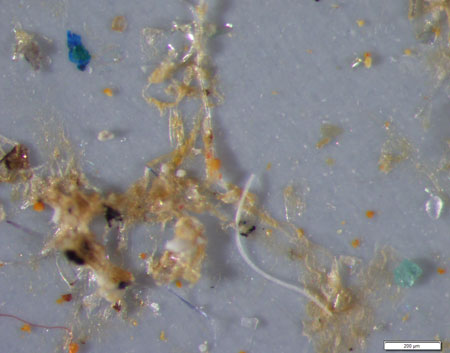 Treatment plants cannot completely keep microplastics out of wastewater by conventional means. This is one of the results of a pilot study. The findings will be used to better protect flora and fauna in rivers and seas.
Treatment plants cannot completely keep microplastics out of wastewater by conventional means. This is one of the results of a pilot study. The findings will be used to better protect flora and fauna in rivers and seas.
Oct 30th, 2014
Read more
Today, the city of Rome welcomed an important new initiative for the large-scale integration of grids and of renewables sources into Europe's energy mix, with nearly 40 leading organisations from research, industry, utilities, transmission systems operators announcing their united goal to find the BEST PATHS to deliver affordable, reliable power in Europe from coast to coast.
Oct 30th, 2014
Read more
 By remotely 'combing' the atmosphere with a custom laser-based instrument, researchers have developed a new technique that can accurately measure - over a sizeable distance - amounts of several of the major greenhouse gases implicated in climate change.
By remotely 'combing' the atmosphere with a custom laser-based instrument, researchers have developed a new technique that can accurately measure - over a sizeable distance - amounts of several of the major greenhouse gases implicated in climate change.
Oct 29th, 2014
Read more
Farmland is vanishing in part because the salinity in the soil is rising as a result of climate change and other man-made phenomena. Researchers propose a new concept for breeding salt- tolerant plants as a way to contribute to global efforts for sustainable food production.
Oct 28th, 2014
Read more
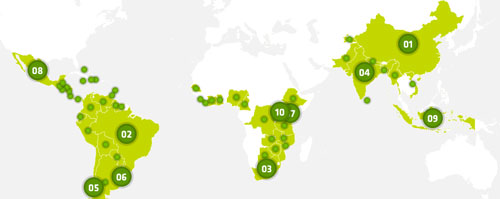 Developing nations represent a large and rapidly growing share of the world's clean energy investment, according to Climatescope 2014, a landmark study released today. The results suggest renewable technologies can be just as cost-competitive in emerging parts of the world as they are in richer nations.
Developing nations represent a large and rapidly growing share of the world's clean energy investment, according to Climatescope 2014, a landmark study released today. The results suggest renewable technologies can be just as cost-competitive in emerging parts of the world as they are in richer nations.
Oct 28th, 2014
Read more
 Researchers have identified microbial genes that can improve both the tolerance and the production of biogasoline in engineered strains of E. coli.
Researchers have identified microbial genes that can improve both the tolerance and the production of biogasoline in engineered strains of E. coli.
Oct 27th, 2014
Read more
Most of the concerns about climate change have focused on the amount of greenhouse gases that have been released into the atmosphere.
Oct 27th, 2014
Read more
Researchers found that the electrolytes in lithium-ion batteries could be replaced with halogen-free electrolytes that are both nontoxic and environmentally friendly.
Oct 24th, 2014
Read more
Multiple pathways exist to a low greenhouse gas future, all involving increased efficiency and a dramatic shift in energy supply away from fossil fuels. A new tool 'SWITCH' enables policymakers and planners to assess the economic and environmental implications of different energy scenarios.
Oct 23rd, 2014
Read more
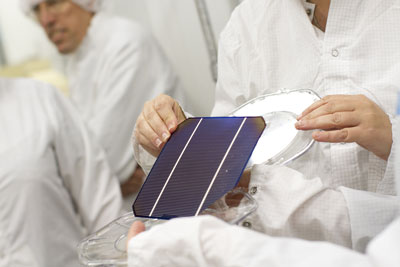 Even technologies promoted for good environmental reasons can sometimes have unforeseen negative consequences.
Even technologies promoted for good environmental reasons can sometimes have unforeseen negative consequences.
Oct 22nd, 2014
Read more
 Soma is the first designer water filter in the world made from natural resources. The bioplastic used for this filter is Bio-Flex.
Soma is the first designer water filter in the world made from natural resources. The bioplastic used for this filter is Bio-Flex.
Oct 22nd, 2014
Read more
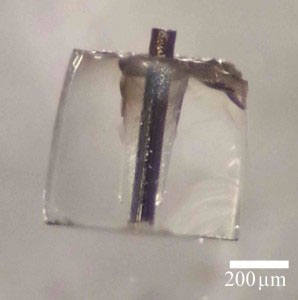 Researchers have pioneered a new approach to manufacturing solar cells that requires less silicon and can accommodate silicon with more impurities than is currently the standard. Those changes mean that solar cells can be made much more cheaply than at present.
Researchers have pioneered a new approach to manufacturing solar cells that requires less silicon and can accommodate silicon with more impurities than is currently the standard. Those changes mean that solar cells can be made much more cheaply than at present.
Oct 22nd, 2014
Read more
Scientists combined hydrogen with its heavier sibling deuterium and created a novel, disordered, 'Phase IV'-material. The molecules interact differently than have been observed before, which could be valuable for controlling superconducting and thermoelectric properties of new materials.
Oct 20th, 2014
Read more
Sscientists have developed geochemical tracers to identify hydraulic fracturing flowback fluids that have been spilled or released into the environment. The tracers have been field-tested at two sites and can distinguish fracking fluids from wastewater versus conventional wells or other sources. They give scientists new forensic tools to detect if fracking fluids are escaping into water supplies and what risks, if any, they might pose.
Oct 20th, 2014
Read more
 Visio.M consortium presents new electric car at the eCarTec 2014 in Munich.
Visio.M consortium presents new electric car at the eCarTec 2014 in Munich.
Oct 20th, 2014
Read more

 Subscribe to our Cleantech News feed
Subscribe to our Cleantech News feed







